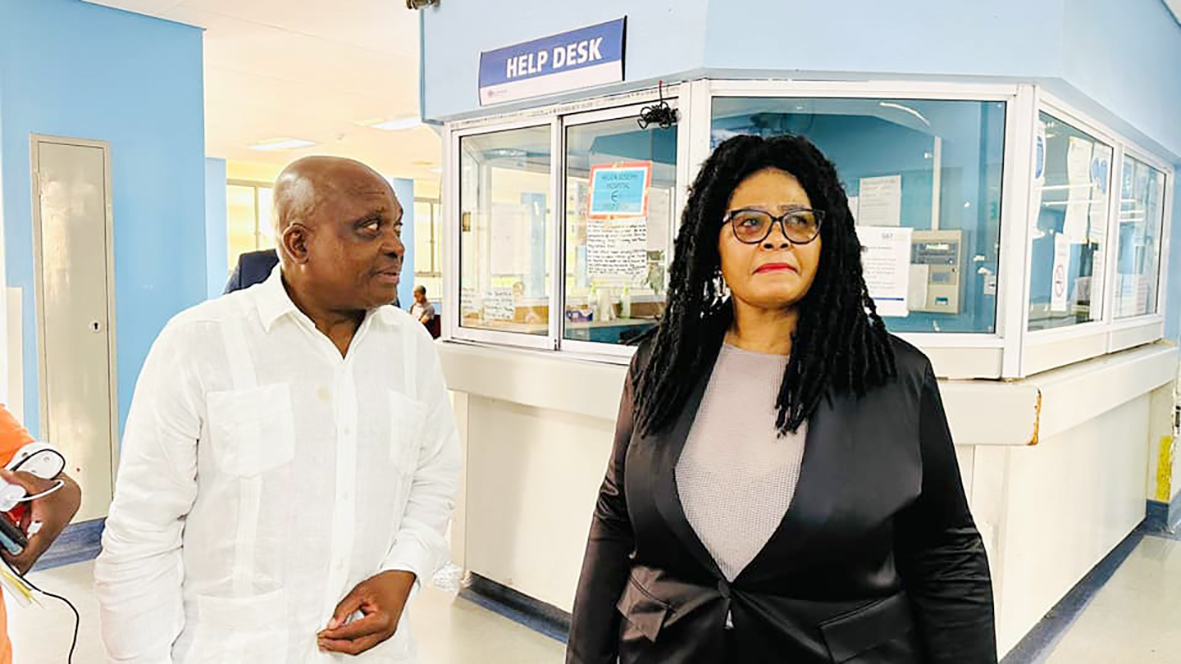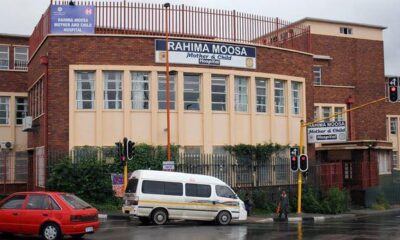
News

‘Dysfunctional, but all hands on deck,’ say doctors on frontline
Doctors at public hospitals, many of them Jewish, have had to sweep floors, take patients to the toilet, and wash them while dealing with critical medical conditions during the protracted public service wage strikes this week (its second week).
“We were all hands on deck,” said one Jewish doctor who couldn’t be named for his own security and for fear of losing his job. “We all did what we had to do.” Surviving on a skeleton staff, doctors still had to save lives and attend to patients as clinical operations were severely hamstrung by the low turnout of nursing and administrative staff.
The crippling protests outside hospitals, which were marred by violence and intimidation, included protesters barricading roads with bricks and stones and setting fire to tyres, in some instances preventing non-striking staff from going to work.
“I had to dodge protesters and rocks in the road to try enter the hospital where I work to treat the ill and injured who managed somehow to get through to us,” the doctor said. “Some patients were turned away, others redirected to other hospitals because we simply couldn’t treat them.
“While I’m immensely sympathetic to the plight of those striking for higher wages, it’s the patients who suffer the most during these salary negotiations,” he said.
After a tumultuous few days in which industrial action turned violent and there were major disruptions at a number of public hospitals, the National Education, Health and Allied Workers’ Union (Nehawu) vowed to intensify its strike on Monday, 13 March. This as the government and unions failed to find each other after returning to the negotiating table to settle the impasse in the public-sector wage talks.
However, doctors and patients breathed a collective sigh of relief later the same day after the Labour Appeal Court delivered a scathing ruling against the Congress of South African Trade Unions (Cosatu)-affiliated union and police inaction to stop the violence associated with the strike. The court forbade workers from going on strike until the finalisation of further legal proceedings.
Health Minister Joe Phaahla warned striking Nehawu members to return to work or face criminal charges and possible dismissal.
“At one stage, there were only three nurses tending to 50 sick patients when there are usually 20 nurses,” said another Jewish doctor.
The South African Defence Force said the army medical corps was being deployed to hospitals that were the worst affected after the health department asked for assistance.
Professor Efraim Kramer of the Thelle Mogoerane Hospital in Vosloorus, which was seriously impacted by the strike, said he was grateful to charity and non-profit organisations including the South African Jewish Board of Deputies (SAJBD) who responded to his call for food to help feed babies and their mothers in the paediatric ward after kitchen staff went on strike.
In a message of gratitude to the SAJBD, Kramer said, “Amongst the negativity that the protest action has had on the hospital, its services, sick kids, and their attending devoted mothers, a gold lining of care, concern, comradeship, and commitment has come to the fore by special people committed to help those affected. The kids and moms had little to eat, and angels came from the gold lining to feed them and bring the greatest smiles and full stomachs.”
One doctor said he was reminded of the COVID-19 pandemic, when nurses and doctors “pulled together and went the extra mile in a show of solidarity and camaraderie which brought out the best in everyone”.
“It hasn’t been mayhem or chaos, just serious levels of dysfunction. It’s sad because patients are the pawn between the two great powers, and they are the ones who suffer.”
Another Jewish doctor at a different hospital said, “The majority of nursing staff came to work although out of uniform to avoid intimidation. This is really to their credit, putting their patient responsibilities first.”
In the first few days, he said some patients were prevented from entering the hospital and turned away. Ambulances made use of the staff entrance which he said wasn’t blocked so emergency services didn’t have issues.
“There were burning tyres and picketing workers initially, but for the most part, access is back to normal now. Throughout the strike, things remained relatively calm although we were on high alert and discharged any elective and non-emergency admissions in case we were going to be short staffed.”
Another female Jewish doctor said that although there were some bad apples among the protesters, it was important to empathise with healthcare workers who just wanted to be heard.
“One needs to understand why they are doing this in the first place. Our colleagues were there during the COVID-19 pandemic too, and risked their lives. Now they are asking for a liveable income and a decent increase in the face of the rising cost of living.”
The Labour Appeal Court called Nehawu’s approach to the strike of essential service workers “deplorable, with the gravest and, in some instances, it appears, deadly consequences”.
“In this regard, the union and its members illustrated a flagrant disregard for the law, the employer, and the people of this country entitled to access essential public services.”
The court said it was inclined to grant the interdict “given the urgency of the matter and reports of serious acts of criminality, misconduct, and intimidation by such striking workers around the country, many of whom appear to be healthcare workers employed in hospitals, clinics, and other essential services”.
The Labour Relations Act defines essential services as those that, if interrupted, would endanger the life, personal safety, or health of the whole or any part of the population.
Last Thursday, Phaahla announced that four people may have lost their lives because of the strike, but it’s believed this figure is likely to rise.
On Tuesday, Nehawu agreed to suspend the strike for 72 hours to consult, but wouldn’t guarantee that it wouldn’t resume the protest.











yitzchak
March 16, 2023 at 8:37 pm
just heard that 850000000 rands (R850mn ) has been misappropriated from Thembisa Hospital due to false invoicing. No prosecutions yet.